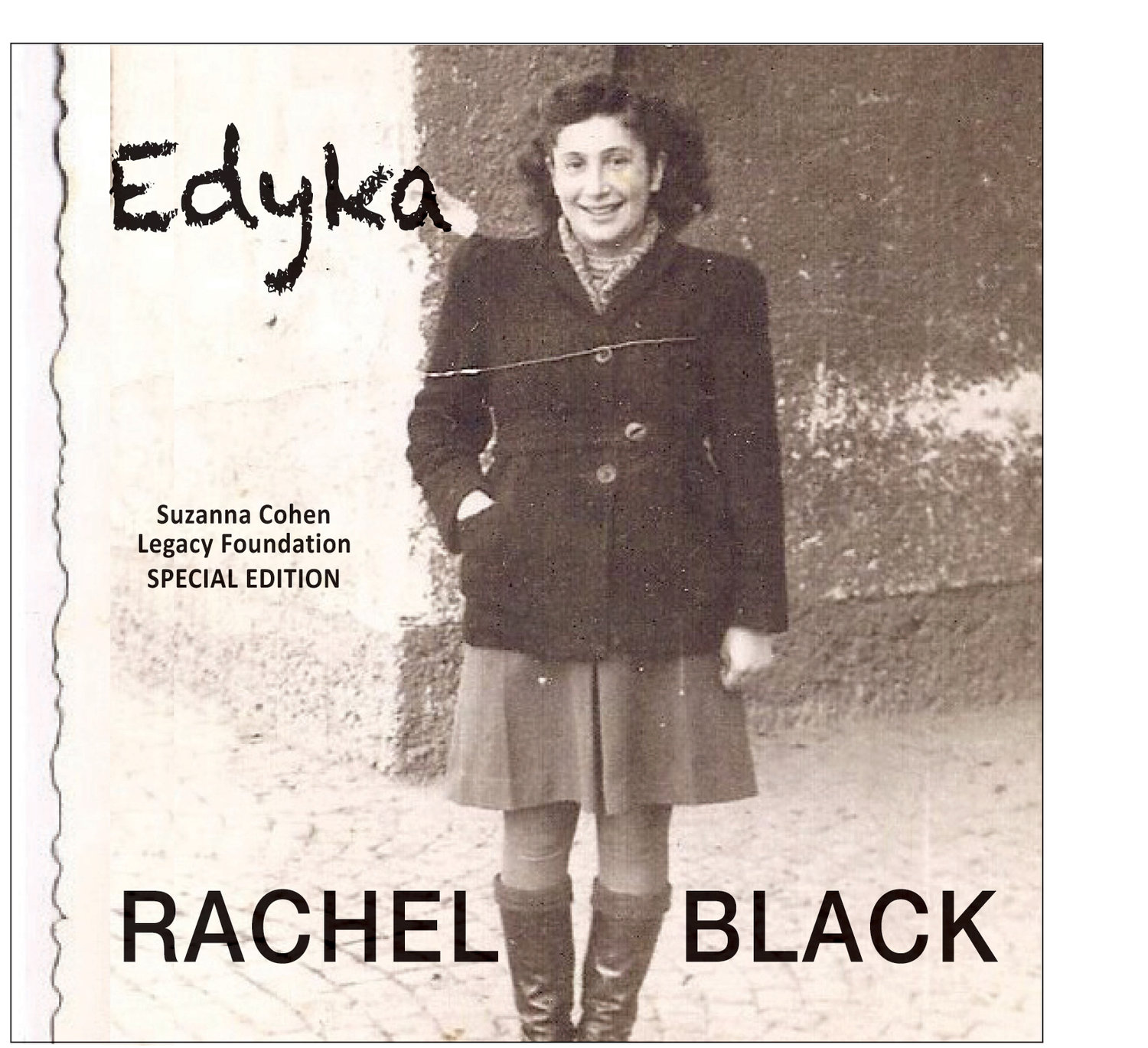A Shoah ballad in the key of 4G
Keeping the memories alive into the fourth generation
This is a deeply personal story that begins before I was born, when my grandmother Fanya seized her slender teenaged daughter — my mother Edyka — and pushed her out of the small vent at the top of a suffocating boxcar rumbling inexorably from Bialystok, Poland, toward the Treblinka death camp. My mother became a “jumper,” thientering a hostile and dangerous Polish forest. She was shot by local forces and buried in a hastily-arranged mass grave in the snow.
Buried, yet one nearly lifeless limb protruded.
Teenaged Herschel, a forest fighter, came upon the area. Spying Edyka’s leg moving, he pulled her out of the pile. For two years, under cloak of night and by raw courage, they lived in the woods as brave partisans. They survived, and after two years in a displaced persons camp, found their home in Chicago. Their courage and determination allowed me to be born.
Growing up, I inhaled my Jewish heritage and love of Israel and devoted my life to unmasking the hidden hands behind the darkest evils and injustices. I adopted the identity of a Second Generation author long before the larger Second Generation movement developed its own national identity.
Among the survivors, one group was determined to keep the memory of Nazi crimes illuminated as a warning beacon to all humanity — that was my family’s group. A second group preferred not to talk about the unspeakable experience except among themselves.
Like many in the corridors of the communally aware, I have been repeatedly shocked by the eruption of open anti-Semitism and anti-Jewish violence in Europe, the mainstreaming of anti-Semitism in the United States, and the eroded position of Israel within certain flanks of the Jewish community. My outlook was bleak. Then two things happened.
Last year, my operatically trained, rock-pop singer/songwriter and cantorial soloist daughter Rachel Black wrote a haunting Holocaust ballad. It is among the first songs of the Shoah written in contemporary musical style. It was titled “Edyka,” named for my mother.
In piercing rhythms and searing lyrics, “Edyka” retold the story of my grandmother saving my mother from that ghastly boxcar, making it possible for me and my daughter to exist, keeping the memory alive. My mother has passed, but her inspiring struggle lives on. I have written about my parents’ story, and now my daughter has ignited a new vector of remembrance in song.
Then, Rachel was invited to sing and deliver a keynote address at her state’s official Yom Hashoah commemoration in 2018. She previewed her song in a solo performance, evoking a rousing, emotional reception. Soon, Rachel performed “Edyka” elsewhere in Kansas, where she lives, with accompanying musicians. Crowds teared up and stood in applause when she chanted the song’s pulsing injunction to survive. The Kansas City Star published an extended Mother’s Day feature about Rachel, her grandmother, her great-grandmother, and the song linking them all, and videoed a performance of the song for its website. Its coverage was picked up by the Associated Press and published in several dozen American newspapers.
In October 2018, Rachel flew to Washington to perform at the National Press Club before a gathering at a Holocaust Legacy ceremony. A few weeks later, she rendered a house-chilling performance at a large commemoration of the 80th anniversary of Kristallnacht in Manhattan.
Two things happened. One was my daughter’s song about my mother and grandmother. The second was learning that Rachel would bring into the world another descendant, made possible by my grandmother and mother, eternalized in song by my daughter. Second Generation, Third Generation, now Fourth Generation.
The new 4G arrival is baby Cora Edyka: Korach gave rise to the original cantors who sang at the Ark of the Covenant; Edyka was in the boxcar. Thus comes Cora Edyka, fit and fighting to take her place in the legacy of survival.
I received a video of Cora Edyka’s first moments in the world as her mother gently sang to her in Hebrew — Hinei Mah Tov. “How good it is … to dwell together.” Hence, the first sounds heard in Cora Edyka’s existence were not Sesame Street cheeps or baby doll squeaks, but the very sounds the Nazis worked so hard to extinguish.
The generations of the Shoah have been determined to fortify and protect the ones to follow. Soon, all the survivors will be gone. The Second Generation, including me, will also soon be gone.
The Third Generation has the duty to ensure that the Fourth Generation will carry the torch. It will be their challenge that we “Never Forget,” for ourselves and for the world. This challenge will be immeasurably more difficult in the decades to come than it was for me over the past half century.
At issue is whether the next generation of Jews will walk furtively looking over their shoulder, or boldly toward a gleaming horizon. I know Rachel and Cora will be among the bold. But they will need plenty of strength and help.
Edwin Black is the New York Times bestselling author of IBM and the Holocaust and many other books. He can be found at www.edwinblack.com.

 44.0°,
Mostly Cloudy
44.0°,
Mostly Cloudy 




